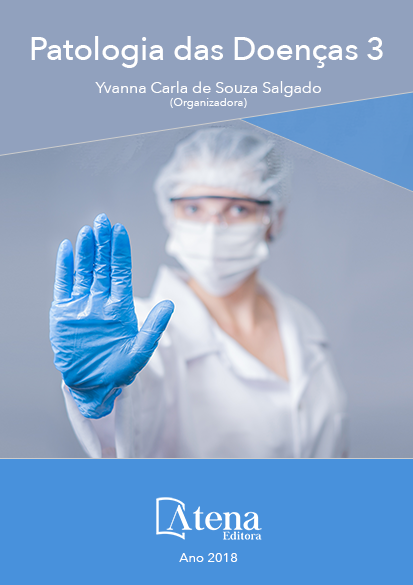
VIGILÂNCIA EPIDEMIOLÓGICA DA DOENÇA DE CHAGAS EM ALAGOAS
A doença de Chagas representa
uma condição infecciosa negligenciada,
causada pelo Trypanosoma cruzi. As formas
de infecção principais contemplam os modos
vetorial, transfusional, congênita, oral, por
transplante de órgãos e acidental. Os perigos
e os fatores que a envolvem, ou seja, o
aspecto socioeconômico e a miserabilidade
nas populações, configuram-se como problema
de saúde pública. Pretende-se caracterizar um
panorama geral sobre a magnitude da vigilância
epidemiológica relacionada à doença de
Chagas que acrescente ao tema de interesse
da América Latina uma visão sobre a situação
no Estado de Alagoas. Trata-se de um estudo
descritivo realizado por meio de pesquisa
bibliográfica, com levantamento de dados
através da base de dados Scielo nas línguas
portuguesa e inglesa, no período de 2000 a
2018. Foram obtidos 73 artigos cujos textos
foram analisados segundo a temática abordada.
Além disso, foram coletados dados disponíveis
pelo SINAN – DATASUS, Guia de Vigilância
Epidemiológica, DIASS/SUVISA/SESAU-AL e
doutrina correlacionada. O artigo evidenciou
lacunas na assistência aos portadores da
doença e no desenvolvimento do Programa
de Controle da doença de Chagas, apesar
do declínio da sua mortalidade. Necessitase
de um maior empenho na vigilância ativa
e investigação minuciosa, inclusive quando
ocorrer notificação de casos suspeitos, além de
ações intersetoriais de prevenção e promoção
à saúde, articuladas à educação em saúde e
mobilização social que tragam como resultado
um suporte à miríade de complicações, criando,
portanto, um ambiente laboral saudável que
contemple a almejada qualidade de vida.
VIGILÂNCIA EPIDEMIOLÓGICA DA DOENÇA DE CHAGAS EM ALAGOAS
-
DOI: Atena
-
Palavras-chave: Doença de Chagas. Epidemiologia. Saúde pública.
-
Keywords: Chagas disease. Epidemiology. Public health
-
Abstract:
Chagas disease represents a neglected infectious condition caused by
Trypanosoma cruzi. The main forms of infection include vector, transfusional, congenital,
oral, organ transplantation and accidental modes. The dangers and the factors that
surround it, that is, the socioeconomic aspect and the miserability in the populations,
are configured as a public health problem. It is intended to characterize a general picture
about the magnitude of the epidemiological surveillance related to Chagas’ disease
that adds to the Latin American interest topic an overview of the situation in the State
of Alagoas. This is a descriptive study carried out by means of a bibliographical survey
that was based on the Scielo database in the Portuguese and English languages,
from 2000 to 2016. In addition to data available by SINAN-DATASUS, Epidemiological
Surveillance and Doctrine correlated. A total of 73 articles were obtained whose texts
were analyzed according to the theme, of which 15 were selected to support the present
study. The integrative review revealed gaps in the care of patients with the disease and
in the development of the Chagas Disease Control Program, despite the decline in
mortality. There is a need for greater commitment to active surveillance and thorough
investigation, including when reporting suspected cases, as well as intersectoral actions
of prevention and health promotion, linked to health education and social mobilization
that result in support to the myriad of complications, creating, therefore, a healthy work
environment that contemplates the desired quality of life.
-
Número de páginas: 15
- Rafaella Lima dos Santos


